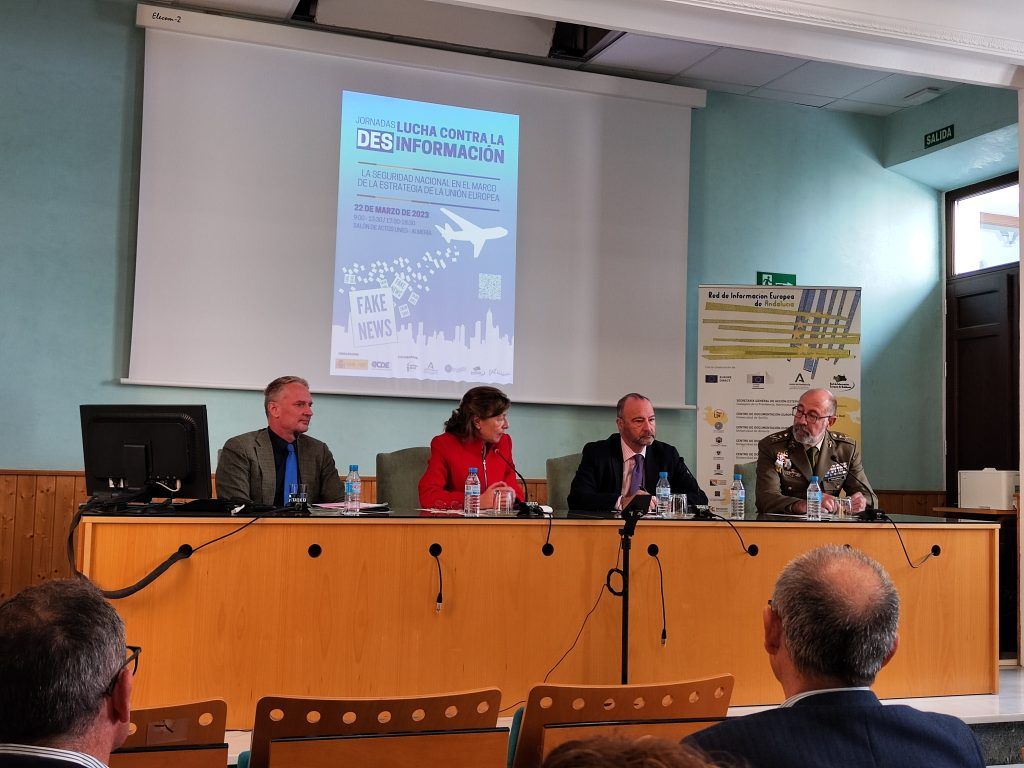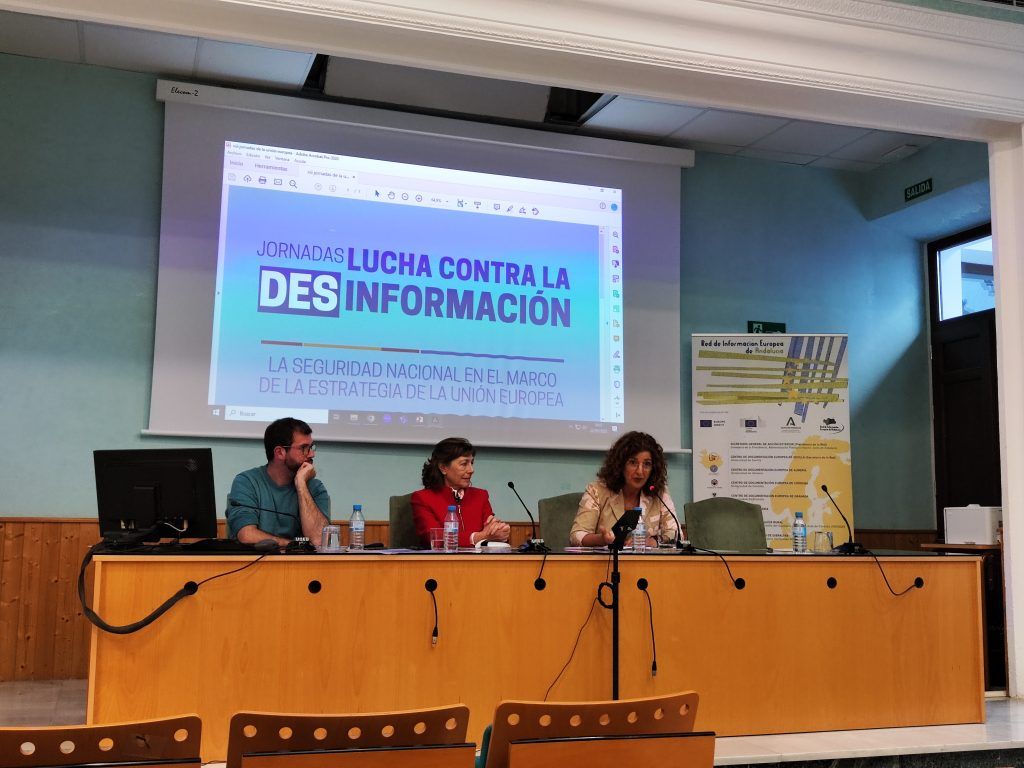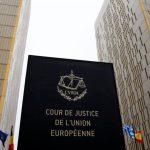The EDC of Almeria organized together with the Subdelegation of Defense the conference “Fight against disinformation: National Security in the framework of the EU strategy”. This conference was held on March 22 at the headquarters of the Universidad a Distancia (UNED).
The conference, officially opened by Colonel Javier Frias, Deputy Delegate of Defense in Almeria, was attended by specialists in different fields related to disinformation, such as General Miguel Ballenilla y Garcia de Gamarra, Director of the Higher School of the Armed Forces; Senator Luis Rogelio Rodríguez-Comendador, spokesman of the Senate Defense Committee in the Spanish Senate; Juergen Foecking, Deputy Director of the European Parliament Office in Spain, and the journalists Guillermo Infantes, member of the verification team of the firm Newtral and Marisa Trapero, member of the Association of Journalists of Almería AP-APAL.
Disinformation is one of the greatest threats to democratic countries, as it affects vital organs of democratic and social life such as institutions, elections, the media and freedom of thought. The work carried out by the European External Action Service has been decisive in recent months in the face of the destabilizing campaigns against the European Union, which have taken place since the invasion of Ukraine a year ago.
During his speech, General Miguel Ballenilla y García de Gamarra, spoke about disinformation within the framework of hybrid war, he explained the meaning of hybrid warfare in the field of defense and the role played by disinformation in it. His presentation was an excellent basis for framing the rest of the lectures of the conference.
General Miguel Ballenilla y García de Gamarra exposed that the best way to fight against disinformation is through the promotion of media literacy, the promotion of information transparency as well as access to information, the promotion of high quality journalism, the protection of freedom of the press, legal actions and, of course, in a global world such as the current world, the international cooperation.
After the General’s speech, Senator Luis Rogelio Rodríguez-Comendador, spokesman in the Senate of the Defense Committee, stressed that Spain is fully committed to the fight against disinformation and works actively within the framework of the European Union and with particular emphasis since 2018, when the European Council took place, in which the Action Plan for a coordinated response against disinformation at the European level was developed and approved. Senator Luis Rogelio Rodríguez-Comendador also indicated that all Administrations must be involved in the fight against disinformation.
Juergen Foecking, Deputy Director of the Office of the European Parliament, explained during his speech what were the responses and decisions that the European Union is carrying out to fight disinformation. For Juergen Foecking, one of the major problems “is to establish the boundary to know where freedom of expression ends and false information begins”. He also explained to the attendees that the EU has created a network of researchers and a code of good practices of self-regulation of the platforms, and whenever disinformation is detected, the EU uses channels to make people aware of what is false news and the platforms are forced to remove it.
As for General Miguel Ballenilla y García de Gamarra, for Juergen Foecking, education is one of the solutions to stop disinformation: “From the EU we finance many campaigns for this purpose. We have to teach children, starting at school, about the dangers of the Internet and teach them not to expose themselves and to know that there is a lot of false news”.
Juergen Foecking’s speech was followed by a round table discussion in which all the speakers who had participated so far in the conference took part. During this round table, which was moderated by the director of CDE Almeria Ana Fe Gil Serra, the attendees were able to ask questions and debate with the speakers.
In the subsequent session, journalists Guillermo Infantes, member of the verification team of the firm Newtral, and Marisa Trapero, member of the Association of Journalists of Almería AP-APAL, intervened.
Guillermo Infantes explained the role played by verification agencies in the monitoring, detection and subsequent verification of content that could be misleading for the public.
According to Guillermo Infantes, the objectives of disinformation include influencing people’s perceptions of reality, creating tension, undermining social cohesion, sowing mistrust and relativizing the truth: “Disinformation tries to attack how we think, how we relate to each other, the trust we have in our democratic systems and our institutions”, said the journalist.
During his speech, besides showing us some examples of hoaxes denied by Newtral, Guillermo Infantes showed us some keys to take into account so that we can consider whether the information we receive is real or, on the contrary, a hoax.
Finally, Marisa Trapero was in charge of closing the conference with her conference presentation. During her speech, Marisa Trapero emphasized the fact that there are people who are more vulnerable to the hoaxes and misinformation: “a large part of the population has neither the tools nor the skills of the verifiers and are therefore more exposed”.
That is why the Journalists Association of Almeria is carrying out workshops in schools where they explain to students how hoaxes work, “once we explain the concepts, we ask them to create a hoax themselves so that they realize how easy it is to spread and make a hoax”.
The journalist indicated during her presentation that one of the possible causes of the vulnerability of the youngest lies in the platforms from which they receive information “young people no longer receive information from traditional media: neither radio, nor television, nor newspapers, they receive information through TikTok, Instagram, Whatsapp and Twitter […] and much of this information comes fragmented and decontextualized.”








Leave a Reply